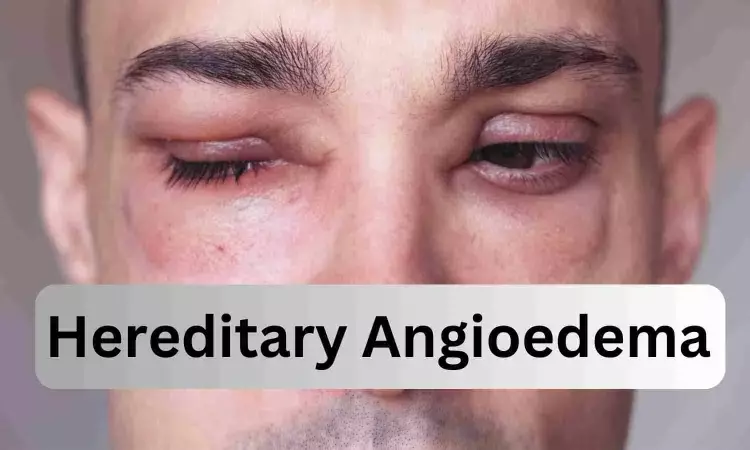- Home
- Medical news & Guidelines
- Anesthesiology
- Cardiology and CTVS
- Critical Care
- Dentistry
- Dermatology
- Diabetes and Endocrinology
- ENT
- Gastroenterology
- Medicine
- Nephrology
- Neurology
- Obstretics-Gynaecology
- Oncology
- Ophthalmology
- Orthopaedics
- Pediatrics-Neonatology
- Psychiatry
- Pulmonology
- Radiology
- Surgery
- Urology
- Laboratory Medicine
- Diet
- Nursing
- Paramedical
- Physiotherapy
- Health news
- Fact Check
- Bone Health Fact Check
- Brain Health Fact Check
- Cancer Related Fact Check
- Child Care Fact Check
- Dental and oral health fact check
- Diabetes and metabolic health fact check
- Diet and Nutrition Fact Check
- Eye and ENT Care Fact Check
- Fitness fact check
- Gut health fact check
- Heart health fact check
- Kidney health fact check
- Medical education fact check
- Men's health fact check
- Respiratory fact check
- Skin and hair care fact check
- Vaccine and Immunization fact check
- Women's health fact check
- AYUSH
- State News
- Andaman and Nicobar Islands
- Andhra Pradesh
- Arunachal Pradesh
- Assam
- Bihar
- Chandigarh
- Chattisgarh
- Dadra and Nagar Haveli
- Daman and Diu
- Delhi
- Goa
- Gujarat
- Haryana
- Himachal Pradesh
- Jammu & Kashmir
- Jharkhand
- Karnataka
- Kerala
- Ladakh
- Lakshadweep
- Madhya Pradesh
- Maharashtra
- Manipur
- Meghalaya
- Mizoram
- Nagaland
- Odisha
- Puducherry
- Punjab
- Rajasthan
- Sikkim
- Tamil Nadu
- Telangana
- Tripura
- Uttar Pradesh
- Uttrakhand
- West Bengal
- Medical Education
- Industry
Donidalorsen taken every eight weeks is safe and has durable efficacy in reducing attack rates in hereditary angioedema: Study

USA: A previous phase 2 open-label extension (OLE) study of donidalorsen in patients with Type 1/2 hereditary angioedema (HAE) showed a 76% reduction in monthly attack rate and improved quality-of-life (QoL) with every eight weeks (Q8W) dosing at Year 1.
A recent article published in The Journal of Allergy and Clinical Immunology reports the Year 2 results of patients who received donidalorsen Q8W.
Michael Manning, Allergy, Asthma & Immunology Associates, and colleagues reported that at Year 2, donidalorsen Q8W was well-tolerated, had plasma prekallikrein levels similar to Q4W dosing, and showed durable efficacy in hereditary angioedema attack reduction. The findings supported the continued study of Q8W dosing.
Hereditary angioedema is an inherited condition with characteristics of recurrent episodes of nonpitting, nonpruritic, subcutaneous or submucosal swelling without urticarial lesions. Multiple body areas, including feet, hands, genitalia, intestinal wall, face, larynx, or tongue, can be involved.
There exist two main types of HAE that are inherited in an autosomal dominant manner. Type I HAE accounts for about 85% of cases and results from a quantitative deficiency of C1 inhibitor. Type II HAE is responsible for about 15% of cases and results from a dysfunctional C1 inhibitor protein. Donidalorsen is an investigational ligand-conjugated antisense oligonucleotide designed for hepatic uptake and inhibition of prekallikrein production.
Dr. Manning and the team presented the two-year update on the impact of donidalorsen taken every 8 weeks in patients with HAE.
The OLE study had fixed (Weeks 1–16, donidalorsen 80 mg subcutaneously every 4 weeks [Q4W]) and flexible (Weeks 17–105, donidalorsen 80 mg Q4W, 80 mg Q8W, or 100 mg Q4W) dosing periods.
Based on the analysis, the researchers reported the following findings:
- Eight of 17 patients received donidalorsen Q8W; 5 patients remained attack-free, and 3 patients returned to Q4W by Year 2.
- 63% of patients reported a treatment-emergent adverse event (TEAE); only 1 patient reported a possible study drug-related TEAE (abdominal pain).
- The mean monthly attack rate across all 8 patients was 0.04 at Year 2 compared with 0.28 at Year 1, an 83% reduction from baseline (randomized study run-in rate, 2.70).
- The mean percent change in plasma prekallikrein at Year 2 was similar for patients receiving Q8W (–59.1) and Q4W (–54.3) dosing.
- Year 2 (27.4) and Year 1 (25.0) improvement in mean Angioedema QoL total scores were comparable.
"At Year 2, donidalorsen Q8W was well-tolerated, had plasma prekallikrein levels comparable to Q4W dosing, and showed durable efficacy in HAE attack reduction, supporting the continued study of Q8W dosing," the researchers wrote.
Reference:
DOI: https://doi.org/10.1016/j.jaci.2023.11.031
Dr Kamal Kant Kohli-MBBS, DTCD- a chest specialist with more than 30 years of practice and a flair for writing clinical articles, Dr Kamal Kant Kohli joined Medical Dialogues as a Chief Editor of Medical News. Besides writing articles, as an editor, he proofreads and verifies all the medical content published on Medical Dialogues including those coming from journals, studies,medical conferences,guidelines etc. Email: drkohli@medicaldialogues.in. Contact no. 011-43720751


